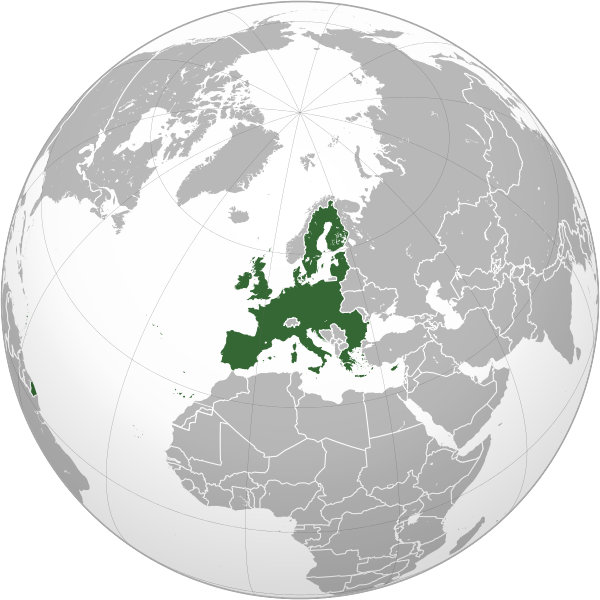Europe must send global cooperation signals – Four proposals
2015 – what a year! Ebola, Ukraine, Syria, Iraq, Islamic terrorism, countless refugee movements and new record temperature highs in our planetary ecosystem. At the same time, 2015 was also the year of the Paris climate treaty, the global Sustainable Development Goals ((SDGs) agreed in New York in summer) and the agreement with Iran to limit the nuclear conflict. The common denominator in all these examples is that, in a world of global, cross-border interdependencies, prosperity and security cannot be achieved at national level as long as insecurity prevails internationally. This simple causality has long been a topic of discussion, becoming more tangible every year.
While the reasons are many, there are four main factors exacerbating the crisis.
The first is the role that poverty, inequality and marginalisation play as a breeding ground for apathy, resignation, violence, societal breakdown and displacement. This can be seen in Iraq, Yemen, Eritrea, Myanmar, Pakistan, India, the United States, Molenbeek in Belgium, and the outlying districts of Paris alike. This link is often ignored until apathy turns into violence.
The second factor is our need as the next generation to learn to manage prosperity within planetary boundaries and to fully decouple development from resource consumption and emissions. If we fail to do so, we run the risk of global distribution conflicts, fresh waves of poverty and refugee movements far larger than the current ones. The Paris climate accord and the global SDGs agreed in New York are at least a sign that states have understood these challenges.
The third factor is the global security threat posed by transnational Islamic terrorism. Comparable with fascism and Stalinism, this is another totalitarian movement that mobilises individuals by offering them a radical alternative world with which to identify.
The fourth factor is the international ensemble of authoritarian nationalists, xenophobes, fence-builders and simplifiers growing within mainstream society in response to the real and alleged dark sides of globalisation. Le Pen, Orban, the new Polish Government, Pegida in Germany and kindred spirits such as Putin and Trump pose a risk to freedom, tolerance and international cooperation.
These crisis mechanisms are easy to describe, but difficult to tackle. Nonetheless, it is possible to outline elements of a globalisation compass, providing bearings that show how these global threats could be mitigated. Four proposals are key: Firstly, without a quantum leap in global cooperation and efforts to curb nationalism, we face decades of crisis and distortion in an increasingly interconnected global society. Consequently, we need to strive wherever possible to strengthen global and cross-border networks of civil society actors, researchers, culture-makers and cities, as they provide the multi-layered humus in which a global culture of cooperation can grow.
Secondly, it is also necessary to generate momentum for the Paris world climate treaty now. Germany and Europe should strive to promote decarbonisation alliances that provide extensive support to countries engaged in particularly ambitious climate change mitigation endeavours. Thirdly, Europe should also do all it can to work with moderate forces within Islam to produce scenarios for a viable future neighbourhood policy. For too long, Europe has ignored the influence of Islam and its areas of internal tension, instead hoping that economic progress will cause Islamic societies to “become like us”. Even in Germany, home to some four million Muslims, knowledge about Sunnis and Shias and the core components of Islamic culture is virtually non-existent. However, in order to facilitate integration and cooperation with Islamic groups and societies, there is a need for mutual awareness of commonalities and differences. In its absence, only the extremes on both sides have become more alike in terms of marginalisation, enmity and intolerance.
Politics also thrives on symbols and signals. The European Union and its member states must fourthly send a clear and visible signal of opposition to nationalist restoration efforts and isolationism and their support for global cooperation. They should therefore make good on their long-standing pledge to increase investment in international cooperation from the current level of 0.42% of gross national product (GNP) to 0.7% by 2018. This would be tantamount to an Investment Programme for Global Development and European Stability with an approximate additional volume of EUR 40 billion, equivalent to EUR 80 per EU citizen. However, the focus is not only on money, but also and especially on a bold call for a new political trajectory. As Europeans, we would be sending a signal that we have understood the direct correlation between tackling global crises, investing in global well-being and promoting European development. Global cooperation is a peace policy that guards against the security threat posed by nationalism. Europe would be assuming its share of the responsibility for protecting global public goods. It may be necessary initially to send this global cooperation signal without the support of Hungary and Poland. The Trumps, Le Pens and Putins of the world would most likely have nothing but contempt for such an initiative. But major changes in policy direction require a great deal of effort and vision. Europe – we can do this!
Dirk Messner is Director of the German Development Institute in Bonn, Germany.
This article was also published in the Frankfurter Rundschau and the website of the German Development Institute.



